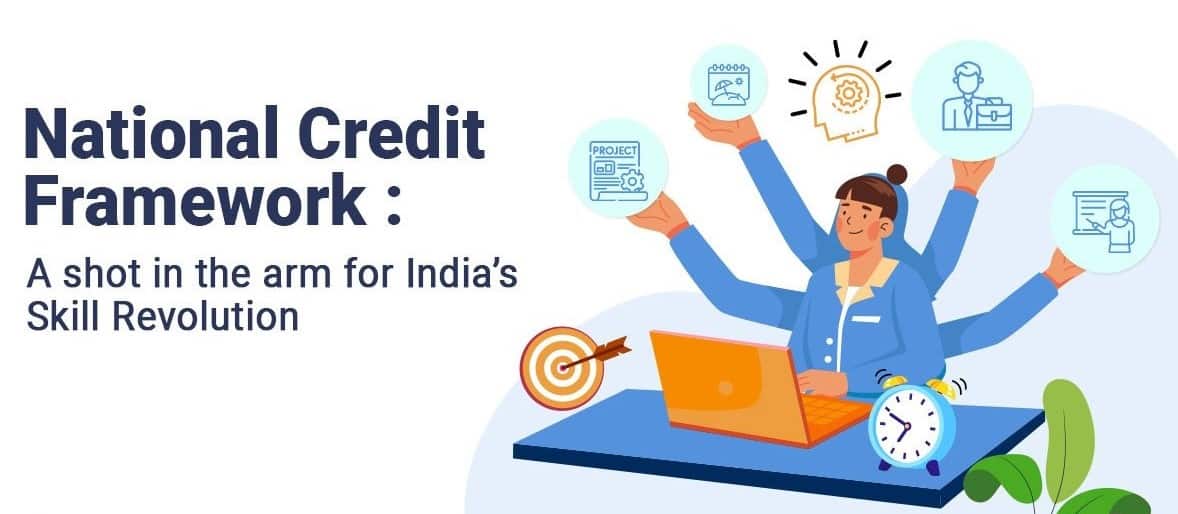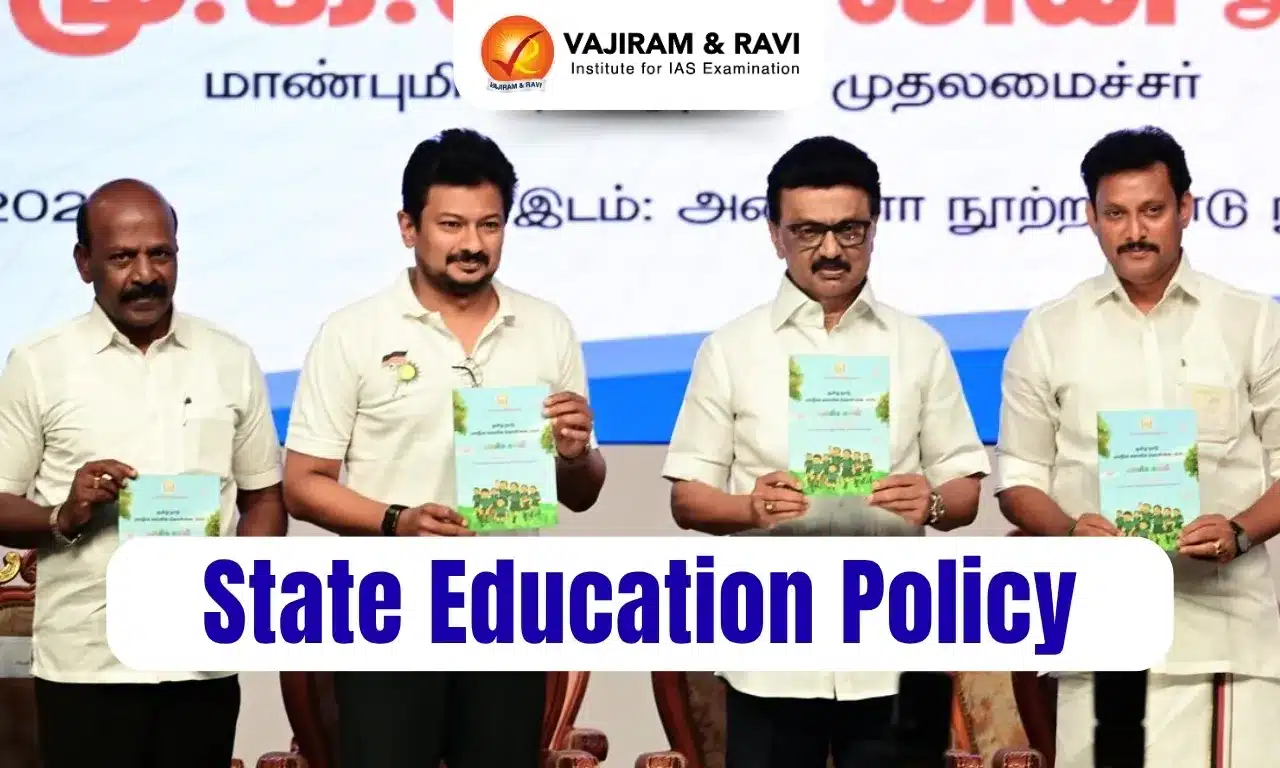What’s in today’s article?
- Why in News?
- What is the National Credit Framework (NCrF)?
- What are the Proposed Benefits of NCrF for Various Stakeholders?
- What is the Significance of NCrF?
- News Summary Regarding the New NCrF
Why in News?
- According to the final report on the new National Credit Framework (NCrF) released by the University Grants Commission (UGC), students will be able to earn credits for specialised knowledge in Puranas, Vedas and the Indian Knowledge System.
What is the National Credit Framework (NCrF)?
- Based on the inter-ministerial committee report, the Union Ministry of Education (MoE) unveiled the draft NCrF in 2022.
- The NCrF is a set of guidelines to be followed by schools, colleges and universities in adopting the credit system.
- It also brings the entire school education system under the ambit of credits for the first time.
- So far, only the National Institute of Open Schooling (NIOS) follows a credit system. The NCrF also covers skill and vocational education.
- The document lists theoretical, applied sciences or vocational and skill disciplines that can count towards credits earned during school education.
What are the Proposed Benefits of NCrF for Various Stakeholders?
- Students:
- Establishing multidisciplinary and holistic education with flexible curricula.
- Removing the distinction between arts, science, social sciences, commerce, etc.
- Giving student credits for every academic/skill/experience.
- Enhancing the scope of core learning to include foundational and cognitive both.
- Institutions:
- Promoting stronger collaboration between institutions.
- Making credit mechanisms simpler and uniform.
- Increasing focus on research and innovation.
- Leveraging the institutional infrastructure.
- Government:
- NCrF is expected to assist the government to increase the enrolment of students.
- Complementing the demographic dividend and transforming India into the Skill Capital of the World.
- Industry:
- NCrF will allow students to attain NSQF-approved foundational skills developed by industry and be more employable.
- The provision of micro-credentials will allow integration of quick educational upgradation/up-skilling.
What is the Significance of NCrF?
- Taking the vision of the National Education Policy (NEP) 2020, NCrF will –
- Enable the integration of academic and vocational domains to ensure flexibility and mobility between the two. Thus, mainstreaming skills and vocational education.
- Enable students who have dropped out of mainstream education to re-enter the education ecosystem.
- Promote Recognition of Prior Learning for workers who have acquired knowledge and skills informally through traditional family inheritance, work experience, or other means.
News Summary Regarding the New NCrF:
- The new document shared by the UGC has included special expertise in the Indian Knowledge System as one of the six areas in which students who are national and international-level achievers can earn credits.
- The remaining being games and sports, performing arts, craftsman of heritage, social work and special achievement in innovation.
- Credits are essentially a recognition that a learner has completed a prior course of learning, corresponding to a qualification at a given level – a way of quantifying learning outcomes.
- For example, if a person has won a gold medal in the Olympic Games, his preparation and practice for this outcome and achievement could be equated with the skilling credit requirements (say 70% credits) for a BVoc degree in physical education.
- Just by accumulating 30% remaining academic credits (say in Hindi), the person could get a vocational degree in physical education.
Q1) What is the University Grants Commission (UGC)?
It is a statutory body set up by the Department of Higher Education, Ministry of Education, Government of India in accordance with the UGC Act 1956 and is charged with coordination, determination and maintenance of standards of higher education in India.
Q2) What is the National Institute of Open Schooling (NIOS)?
The NIOS formerly known as National Open School (NOS) was established in 1989 as an autonomous organisation in pursuance of National Policy on Education 1986 by the Ministry of Education (MOE), Government of India.
Source: Vedas, Puranas to fetch students credits under new framework | ToI | IE | PIB
Last updated on July, 2025
→ UPSC Notification 2025 was released on 22nd January 2025.
→ UPSC Prelims Result 2025 is out now for the CSE held on 25 May 2025.
→ UPSC Prelims Question Paper 2025 and Unofficial Prelims Answer Key 2025 are available now.
→ UPSC Calendar 2026 is released on 15th May, 2025.
→ The UPSC Vacancy 2025 were released 1129, out of which 979 were for UPSC CSE and remaining 150 are for UPSC IFoS.
→ UPSC Mains 2025 will be conducted on 22nd August 2025.
→ UPSC Prelims 2026 will be conducted on 24th May, 2026 & UPSC Mains 2026 will be conducted on 21st August 2026.
→ The UPSC Selection Process is of 3 stages-Prelims, Mains and Interview.
→ UPSC Result 2024 is released with latest UPSC Marksheet 2024. Check Now!
→ UPSC Toppers List 2024 is released now. Shakti Dubey is UPSC AIR 1 2024 Topper.
→ Also check Best IAS Coaching in Delhi















